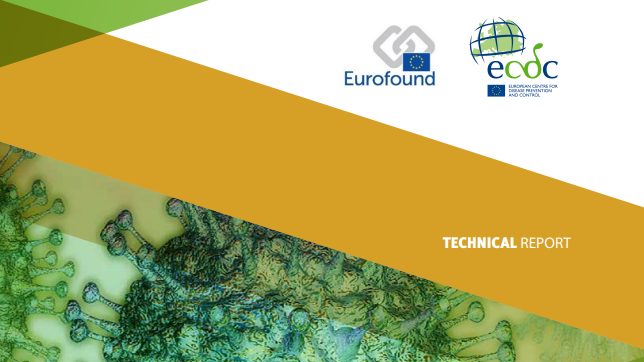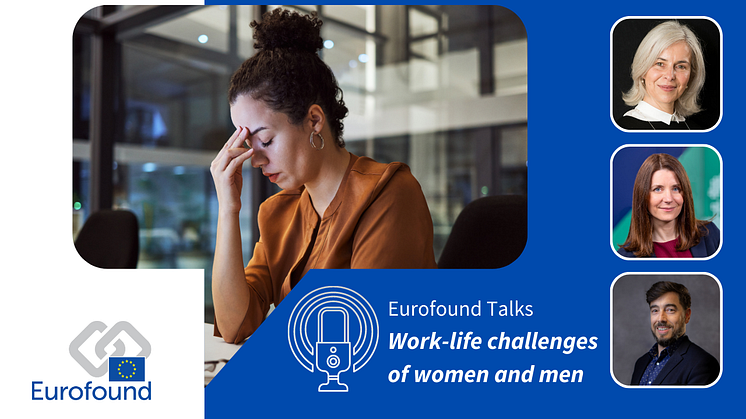
Press release -
ECDC and Eurofound investigate the impact of selected non-pharmaceutical interventions in the EU
A new joint report by ECDC and Eurofound concludes that adult work-life balance was significantly affected by measures such as stay-at-home orders and recommendations, closures of day-care, primary and secondary schools and national teleworking recommendations implemented in response to the COVID-19 pandemic.
The study by two EU agencies, ECDC and Eurofound, focused on the impact of selected non-pharmaceutical interventions (NPIs) on the work-life balance of EU adults in the 27 EU Member States between March 2020 and May 2022.
It found that the association between these NPIs and the work-life balance of adults in the EU varied across specific groups. For instance, individuals living with young children suffered more from the stay-at-home policies and school closures, while benefitting less from teleworking. At the same time, people under the age of 35, those living without children, as well as people in the countryside and those living in northern EU countries perceived a positive impact from teleworking policies on their private-professional life balance, with limited or non-significant negative impacts.
Results of the study show that closures of educational facilities and teleworking reduced the pressure of work on personal and family life by decreasing working time and tiredness from work. At the same time, other measures, in particular the stay-at-home policies as well as teleworking, increased European adults’ propensity to worry about work outside of working hours and, in some instances, reduced their job concentration and dedicated working time due to family responsibilities.
The report provides lessons learned for policymakers, healthcare professionals and the scientific community that are particularly relevant at this phase when pandemic preparedness plans are being updated in many countries to incorporate lessons from the response to the COVID-19 pandemic. The following actions are identified:
- current research efforts should be expanded to appreciate the societal impact of pandemic response measures as well as discern the long-term effects of NPIs’ use on different population groups;
- non-mandatory measures should be preferred to legally enforced orders when the effectiveness and adherence of the two different approaches are similar;
- explore the positive impacts observed in the study to identify opportunities for bringing positive changes to adults’ work-life balance also in ‘peace time’;
- support should be reinforced to affected population groups when implementing measures, to mitigate the negative impacts of some NPIs;
- when planning the implementation of NPIs at the population level, their overall impact on the community and on vulnerable groups should be considered;
- collaboration between public health authorities, behavioural scientists and policymakers should be established, to be able to rapidly launch operational research activities when a crisis arises.
The new report is based on data in the ECDC-JRC Response Measures Database and on five rounds of responses to Eurofound’s Living, working and COVID-19 e-survey.





